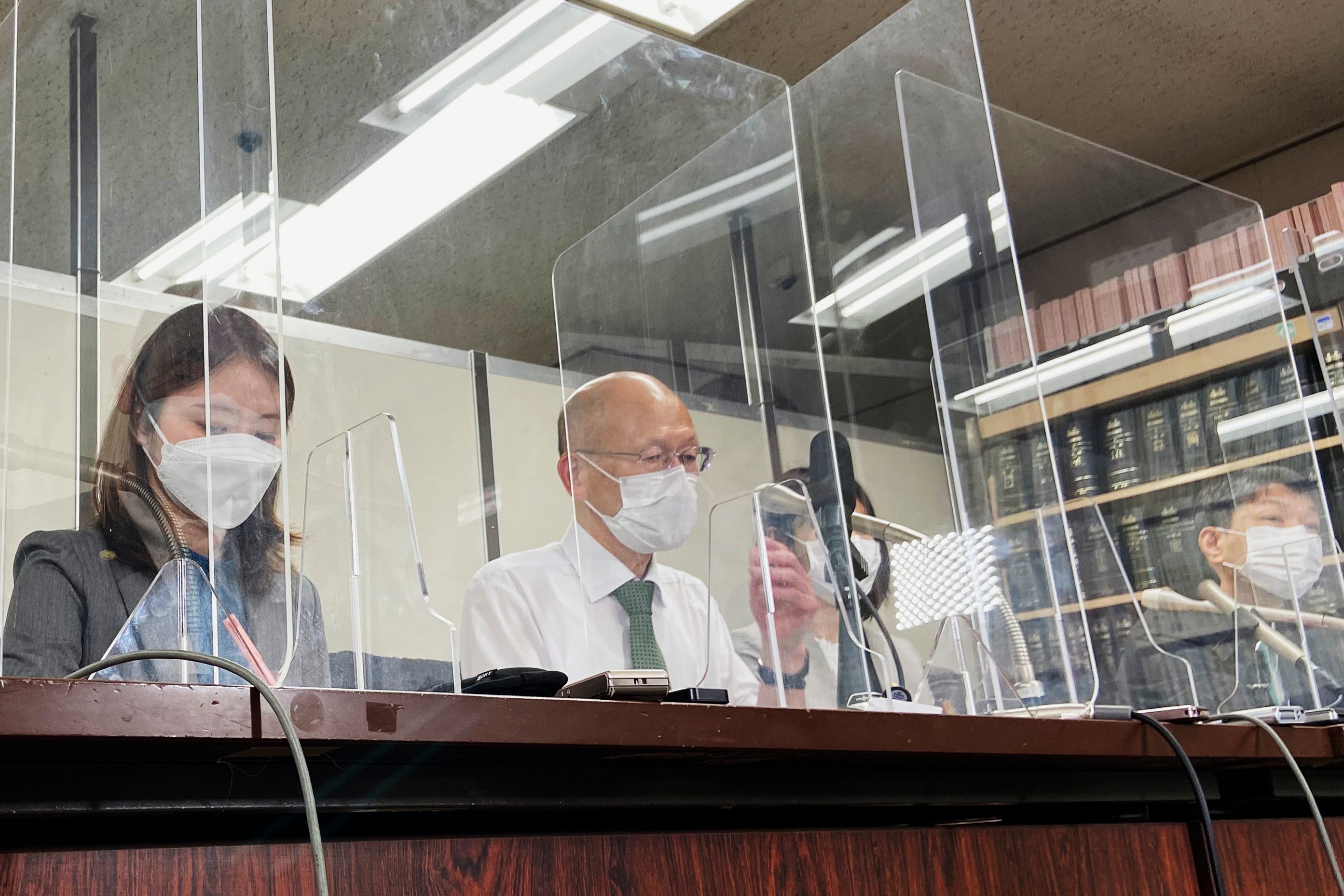Cancer patients seek damages from Fukushima nuclear plant
A Tokyo court has begun hearings in a lawsuit seeking nearly $5 million in damages for six people who were children in Fukushima at the time of its 2011 nuclear power plant disaster and later developed thyroid cancer

Your support helps us to tell the story
From reproductive rights to climate change to Big Tech, The Independent is on the ground when the story is developing. Whether it's investigating the financials of Elon Musk's pro-Trump PAC or producing our latest documentary, 'The A Word', which shines a light on the American women fighting for reproductive rights, we know how important it is to parse out the facts from the messaging.
At such a critical moment in US history, we need reporters on the ground. Your donation allows us to keep sending journalists to speak to both sides of the story.
The Independent is trusted by Americans across the entire political spectrum. And unlike many other quality news outlets, we choose not to lock Americans out of our reporting and analysis with paywalls. We believe quality journalism should be available to everyone, paid for by those who can afford it.
Your support makes all the difference.A Tokyo court began hearings Thursday in a lawsuit seeking nearly $5 million in damages for six people who were children in Fukushima at the time of its 2011 nuclear power plant disaster and later developed thyroid cancer.
The plaintiffs are suing the operator of the nuclear plant, saying radiation released in the accident caused their illnesses.
It is the first group lawsuit filed by Fukushima residents over health problems allegedly linked to the disaster, their lawyers say.
One plaintiff, identified only as a woman in her 20s, testified from behind a screen that she had to give up plans to attend university because of repeated operations and treatments.
“Because of the treatments, I could not attend university, or continue my studies for my future job, or go to a concert. I had to give up everything,” she said. “I want to regain my healthy body, but that’s impossible no matter how hard I wish.”
She and the five other plaintiffs are seeking a total of 616 million yen ($4.9 million) in damages from Tokyo Electric Power Company Holdings for allegedly causing their cancers.
On March 11, 2011, a magnitude 9.0 earthquake and massive tsunami destroyed the Fukushima plant’s cooling systems, causing three reactor cores to melt and release large amounts of radiation. Critics say the plant operator should have known that a large tsunami was possible at the site.
The plaintiffs, who were 6 to 16 years old at the time of the accident and lived in different parts of Fukushima, were diagnosed with thyroid cancer between 2012 and 2018, their lawyers said.
The plant operator told the court that they were not exposed to enough radiation to cause cancer, citing tests of 1,080 children from three cities around the plant that showed about 55% were not exposed and none received more than 50 millisieverts, the annual limit for nuclear workers.
An increase in thyroid cancer was found among children following the 1986 Chernobyl nuclear disaster in Ukraine.
The Fukushima prefectural government tested 380,000 residents aged 18 or younger at the time of the accident for thyroid cancer. About 300 were diagnosed with cancer or suspected cancer.
That occurrence rate, about 77 per 100,000, is significantly higher than the usual 1-2 per million and can only be linked to radiation from the accident, the plaintiffs' lawyers said.
Prefectural officials and experts have said the high level of thyroid cancer found in Fukushima is due to an overdiagnosis, which might have led to unnecessary treatment.
Kenichi Ido, one of the lawyers, said none of the cases involve an overdiagnosis and that the plant operator should be held accountable for radiation exposure unless it can prove otherwise.
The plaintiff who testified Thursday said she walked from home to her high school five days after the tsunami, just as the reactors were undergoing meltdowns.
Three other plaintiffs who attended the hearing were also behind a partition to protect their privacy because of criticism on social media accusing them of fabricating their illnesses and hurting the image of Fukushima, the lawyers said.
The government was slow in responding to the crisis, and evacuations in many places were delayed due to a lack of disclosure of what was happening at the nuclear plant. Residents who fled in their cars clogged roads and were stranded for hours outside while radiation spread from the damaged reactors. Some residents headed to evacuation centers in the direction of the radiation flow.